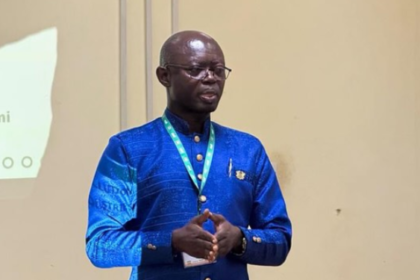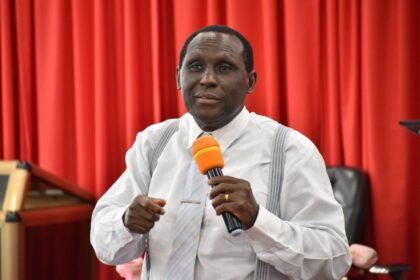Cataract remains the leading cause of blindness in Ghana, with more than 65,000 people currently blind due to the condition. This accounts for over 50% of the country’s total blind population, which stands at approximately 250,000.
According to Dr. Hornametor Afake, Head of the National Eye Care Unit at the Ghana Health Service (GHS), cataract-related blindness increases by 20% each year, yet efforts to address the crisis remain inadequate. He shared the data at the launch of World Sight Day 2025 in Accra, held under the theme: “Increasing Access to Quality Eye Care in Ghana.”
“Our current cataract surgical coverage is just 18%. That means only 18 out of every 100 patients in need receive surgery,” Dr. Afake stated.
Ghana performs fewer than 30,000 cataract surgeries annually, far below the 68,000 needed per year to clear the backlog within three years. This translates to an average cataract surgical rate (CSR) of 712 over the last five years — well below global targets.
Other major causes of blindness include:
- Glaucoma: 60,000 people (19.4%)
- Diabetic Retinopathy: 12.9%
- Corneal Opacities: 11.2%
A 2015 survey also showed that 1.07% of Ghanaians (approx. 360,000) suffer from severe visual impairment. Notably, 67.7% of the blind live in areas with limited or no access to quality eye care.
Eye Health Workforce and Equity Gaps
Dr. Afake noted that while Ghana has made progress in building its eye care workforce, the distribution remains highly unequal:
- 141 ophthalmologists
- 570 optometrists
- 900 ophthalmic nurses
- 800 opticians
Six regions — Western North, Savannah, North East, Upper West, Upper East, and Oti — currently have no ophthalmologists, revealing deep disparities in access to care.
Barriers to Eye Care
Key challenges affecting eye health delivery include:
- Limited specialist equipment
- Financial constraints for patients
- Low public awareness, leading to late diagnosis of conditions like glaucoma
- Inadequate funding for national eye health programmes
Calls to Action
The Director of the Family Health Division at GHS, Dr. Kennedy Britson, urged Ghanaians to seek regular eye screenings and avoid using unverified treatments or other people’s glasses.
“If your eyesight is troubling you, get proper help. Don’t self-medicate or borrow someone else’s lenses,” he cautioned.
Dr. Dzifa Ofori-Adjei, former President of the Ophthalmological Society of Ghana, encouraged citizens to become “eye health champions” by advocating for regular checkups and supporting others to do the same.
She also urged government to:
- Invest in eye health infrastructure
- Ensure equitable distribution of trained personnel
- Pass key legislation to support tissue donation and quality service delivery
The Ministry of Health reaffirmed its commitment to improving access to eye care as part of Ghana’s broader health agenda. Other speakers at the event included the Director-General of the GHS (in absentia) and Dr. Boateng Wiafe, Country Chair of the Global Eye Summit.














